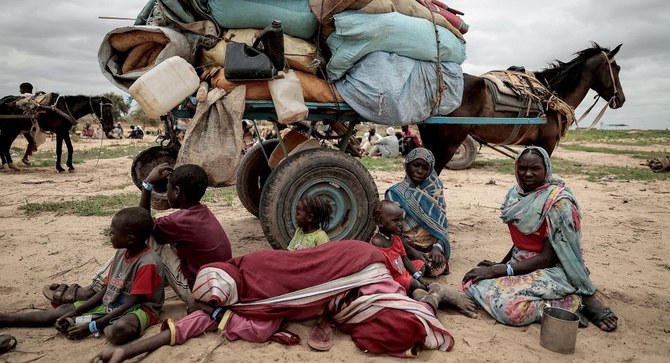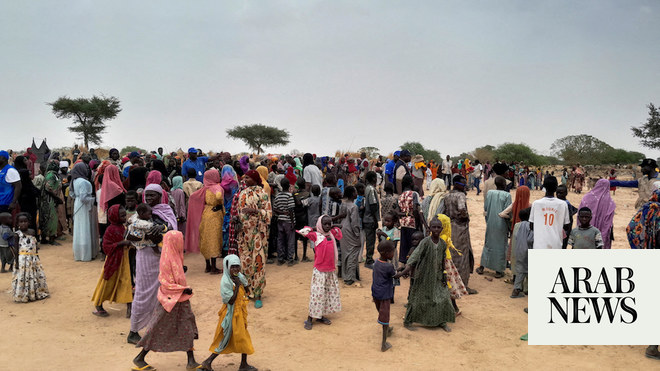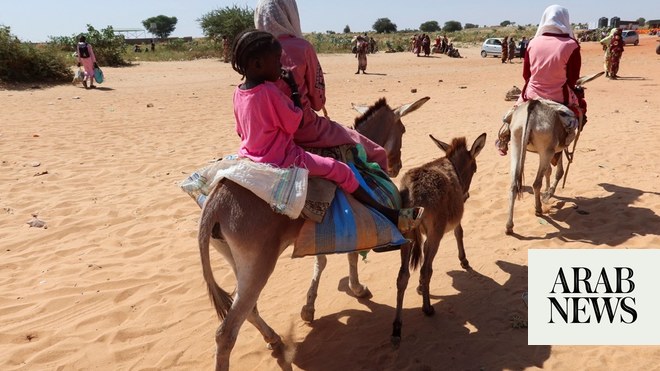
As the world grapples with a myriad of challenges, it is crucial to cast a discerning eye on regions that continue to bear the brunt of conflict and human suffering. Darfur, a region in western Sudan, stands as a stark reminder of the international community’s failure to prevent genocide in the not-so-distant past. Despite efforts to bring about peace, there are ominous signs that another catastrophe may be on the horizon, demanding our immediate attention and action.
The scars of the Darfur genocide, which unfolded between 2003 and 2008, are still fresh in our collective memory. The conflict, driven by ethnic and tribal tensions, resulted in the deaths of hundreds of thousands of people and the displacement of millions. International outcry and promises of “never again” echoed through diplomatic corridors, yet the situation in Darfur remains precarious.
The Sudanese government’s attempts to control the region through a brutal campaign against rebels and perceived dissidents have left a power vacuum, exacerbating existing ethnic and tribal fault lines. Despite the ousting of former President Omar Bashir, who was indicted by the International Criminal Court for his role in the Darfur genocide, the underlying issues persist, simmering beneath the surface and threatening to erupt once again.
The international community must recognize the signs pointing toward a potential recurrence of genocide in Darfur. The first ominous signal is the lack of meaningful progress in achieving lasting peace and stability. Despite multiple peace agreements and negotiations, the region remains mired in violence, with clashes between government forces, rebels and various armed groups persisting. This ongoing instability creates an environment conducive to mass atrocities.
Secondly, the humanitarian situation in Darfur is dire, with millions of people in need of assistance. The displacement of populations, coupled with a lack of access to basic resources such as food, water and healthcare, creates an environment ripe for exploitation and abuse. History has shown that desperate circumstances can lead to increased vulnerability and heightened tensions, providing the perfect breeding ground for the seeds of genocide to take root.
Moreover, the world cannot afford to turn a blind eye to the alarming rise in hate speech and incitement to violence in Darfur. Inflammatory rhetoric, fueled by deep-seated ethnic and tribal animosities, is spreading like wildfire, sowing the seeds of discord and deepening divisions within the population. The international community must recognize the power of words in shaping public perception and act swiftly to counteract the dangerous narratives that can escalate into widespread violence.
A critical factor contributing to the potential for genocide in Darfur is the insufficient international response. The UN and other key players have been slow to react, bogged down by diplomatic hurdles and a lack of consensus on how to address the complex web of issues at play. It is imperative that the global community overcomes these challenges and acts decisively to prevent another humanitarian catastrophe.
To avert the looming crisis, a multifaceted approach is required. First and foremost, there must be a concerted effort to address the root causes of the conflict in Darfur. This includes tackling long-standing issues of marginalization, discrimination and unequal distribution of resources. The international community, working through diplomatic channels, should pressure the Sudanese government to address these structural issues and work toward inclusive governance.
Humanitarian aid must be ramped up to alleviate the suffering of the people in Darfur. The international community should provide the necessary resources to ensure that those affected by the conflict have access to food, clean water and medical care. This not only addresses the immediate needs of the population but also serves as a crucial step in preventing the escalation of violence.
Additionally, the UN and other relevant bodies must strengthen their peacekeeping efforts in Darfur. This includes deploying more troops and ensuring that they have the resources and mandate to effectively protect civilians. The international community must be resolute in holding those responsible for human rights abuses accountable, sending a clear message that impunity will not be tolerated.
Despite the ousting of Bashir, the underlying issues persist, simmering beneath the surface and threatening to erupt once again.
Dr. Azeem Ibrahim
The Organization of Islamic Cooperation has a unique role to play, as it holds significant influence in Sudan. It should urgently engage in diplomatic efforts to promote dialogue and reconciliation among the conflicting parties, emphasizing the principles of peace and tolerance. Second, the OIC can mobilize humanitarian aid to address the urgent needs of the affected population, fostering stability. Third, by leveraging its diplomatic network, the OIC can encourage regional cooperation and support for peacebuilding initiatives in Darfur. Through these concerted efforts, the OIC can play a crucial role in preventing the recurrence of genocide in this troubled region.
The world cannot afford to repeat the mistakes of the past by allowing another genocide to unfold in Darfur. The signs are ominous and the international community must act with urgency, determination and a collective sense of responsibility. By addressing the root causes, providing humanitarian aid, strengthening peacekeeping efforts and applying diplomatic pressure, we can work toward a more stable and secure future for the people of Darfur. The echoes of “never again” must ring true and we must stand united to prevent another tragedy on the scale of the Darfur genocide.
Dr. Azeem Ibrahim is the director of special initiatives at the Newlines Institute for Strategy and Policy in Washington DC. X: @AzeemIbrahim












